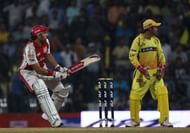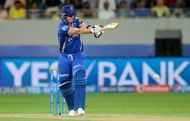Ever since the ECB invented T20 cricket for their county league in 2003, the shortest format of the game has been a revelation. It has raged through fans like wildfire and truly is an intrinsic part of the game today. The Indian Premier League has been a gargantuan success right from its inception and the T20 format has a lot to do with.
Why would it not?
It is entertaining. It is fast-paced. And, unless weather decides to intrude, it always gives the audience a winner. The super-over has been a delicious component of T20 cricket and has given us some nerve-wracking memories, especially in the IPL.
As we inch closer to a milestone 10th season of the IPL, let us look at its top 5 matches through the seasons that went all the way, and then went a bit beyond! However, before reliving these memories, let’s look at the basic rules of a super-over.
- The super-over, or the one-over eliminator, is played to determine the winner after the match is tied.
- The team which bats second in the main match bats first in the super-over.
- Three batsmen are nominated by each side for the super-over which means that if a team can lose a maximum of two wickets.
- One player can either bat or bowl in the super-over. If the player has bowled the super-over, he cannot bat for his team in the super-over and vice versa.
In case the super-over is tied too,
- The team with the maximum number of boundaries (main match + super-over) wins.
- The team with the maximum number of boundaries (main match) wins.
- If the main match was affected by rain and D/L method was used, the team scoring maximum runs off the last delivery of the super-over (including the extras) wins.
Here are the top 5 super-over matches of the Indian Premier League.
#5 Sunrisers Hyderabad vs Royal Challengers Bangalore, 2013
The IPL 2013 was an eventful affair. On one hand, Chris Gayle scored a monstrous 175 off 66 balls and on the other hand, three Rajasthan Royals players were arrested for spot-fixing. It had a riveting Mumbai Indians vs Chennai Superkings final, which was won by Mumbai, who lifted their first ever IPL trophy and ended Sachin’s IPL career on a high.
What made the tournament special was that it witnessed two super-over matches in its group stage. That had never happened in any other edition of the IPL. Surprisingly, the Royal Challengers Bangalore were a part of both these matches.
Let us talk about the earlier match which was between Sunrises Hyderabad and RCB at the Rajiv Gandhi Stadium in Hyderabad. After the scores were tied at 130-each, Cameron White and Thisara Perera took guard against Vinay Kumar in the super-over.
They set a total of 20 with Virat Kohli’s team needing 21 to win. The captain walked out with Chris Gayle to try and do the same against a fiery Dale Steyn.
Super-over | SRH | RCB |
Ball 1 | No ball(1 +1) 1 | 2 |
Ball 2 | 1 | 1 |
Ball 3 | 1 | 4 |
Ball 4 | 6 | 1 |
Ball 5 | 6 | 6 |
Ball 6 | 2 | 1 |
Total | 20 | 15 |
The super-over, and consequently the match, was tilted in the home team’s favour as soon as White hit those mammoth sixes against Vinay Kumar. It put RCB on the defensive instantly. Vinay Kumar’s no ball off the first delivery of the super-over also gave the hosts two extra runs and another ounce of confidence immediately.
Dale Steyn fired two spot-on yorkers which put the batsmen under tremendous pressure. His experience, backed up by the good work from his teammates earlier, is what got SRH over the line.
An important lesson from this super-over was to not give the opposition any extra runs and to avoid length deliveries at all costs – all the three sixes hit in the super-over were off length deliveries.
#4 Royal Challengers Bangalore vs Delhi Daredevils, 2013
RCB’s 2013 season was full of undulated performances. Some days, they were these superhumans that were impossible to beat. On others, their spark fizzled out suddenly. In spite of boasting of the strongest playing XI in the IPL, especially in the batting department, Kohli’s men could not even qualify for the playoffs.
However, they did give the audience some exciting action.
Their second super-over of the season was against the Delhi Daredevils, this time in their backyard – the Chinnaswamy stadium in Bangalore. The match was tied when RCB levelled scores with the 152 made by the Daredevils.
Gayle and AB de Villiers came out to bat in the super-over and scored a total of 15 runs against a misfiring Umesh Yadav. David Warner and Ben Rohrer had an uphill task ahead of them and Ravi Rampaul was the bowler.
Super-over | RCB | DD |
Ball 1 | 1 | W |
Ball 2 | 1 | 4 |
Ball 3 | 1 | 0 |
Ball 4 | 0 | 6 |
Ball 5 | 6 | 1 |
Ball 6 | 6 | W |
Total | 15 | 11 |
AB de Villiers’s characteristic sixes off the last two balls of the Yadav over shifted the momentum right away. Gayle catching Warner off the first delivery of the super-over almost sealed the deal for RCB.
What set the two super overs apart was the calm head that the South African kept even after scoring just 3 runs off the first 4 deliveries. Irfan Pathan could not do the same when his side required 5 from 1 to win the game. Instead, he ended up losing his wicket.
#3 Chennai Super Kings v Kings XI Punjab, 2010
Chennai Superkings unarguably were the most consistent team in the Indian Premier League. They qualified for the playoffs of every edition they participated in, reached five finals and won two of them. Especially from 2009 to 2012, they were the team to beat.
This was the first and only super-over of the 3rd edition of the IPL. It was a low scoring game where KXIP made just 136 and the best CSK could do was match that effort. They came close in the last over when they needed 4 from 4 balls first and 1 from 2 deliveries later.
However, Pathan made sure that they could not get it done. Albie Morkel, Mathew Hayden and Suresh Raina faced off against Juan Theron, the IPL debutant, to set a below-par target of 10 runs. Mahela Jayawardene and Yuvraj Singh were sent by KXIP to chase the target against Muttiah Muralidharan.
Super-over | CSK | KXIP |
Ball 1 | 1 | 6 |
Ball 2 | W | W |
Ball 3 | 2 | 0 |
Ball 4 | 6 | 4 |
Ball 5 | W | - |
Total | 9 | 10 |
The analysis to draw from this super-over is simple – one cannot afford to lose both the wickets in a super over, especially when batting first. More than anything else, it wastes an entire delivery or more, thereby restricting the batting team automatically.
Moreover, a spinner bowling in a super-over is a dangerous deal that looks too risky to be effective. Cheeky shots, exactly like the one Yuvraj Singh played to win the match, are more probable when a spinner is bowling.
#2 Kolkata Knight Riders vs Rajasthan Royals, 2009
Both these teams have locked horns in a super-over two times over the nine editions of the IPL and both of them have been sensational. Let us talk about the first ever super-over of the Indian Premier League, which took place at Cape Town in the second edition of the IPL in 2009.
Shane Warne’s electric stop off the last ball of the KKR innings ensured that Ishant Sharma could only score a run instead of the couple that were required to win the match. The scores were tied at 150 each. Gayle and Brendon McCullum walked in to the centre in the super-over against an inspired Kamran Khan.
Gayle did what he does the best to score three consecutive 4s to set up a stiff target of 16 for Warne and company. Little did they know that Yusuf Pathan would end up doing it all alone in just 4 deliveries!
Super-over | KKR | RR |
Ball 1 | 1 | 6 |
Ball 2 | 1 | 2 |
Ball 3 | 4 | 6 |
Ball 4 | Wide 4 | 4 |
Ball 5 | 4 | - |
Ball 6 | W | - |
Total | 15 | 18 |
What made the target accessible to the Royals was the mind-blowing catch taken to dismiss Gayle on the last delivery of the super-over. If that would’ve been a boundary, the target would’ve gone almost out of hands for the defending champions.
Brad Hodge dropped Pathan, which proved that catches win matches and drops are too costly in this format of the game. Moreover, handing the super-over to a spinner, even though it was Ajanta Mendis, proved to be too big a gamble yet again.
#1 Kolkata Knight Riders vs Rajasthan Royals, 2014
This match truly does not need any introduction. The excitement of the final over, the tension of the super-over and the cam head of Steve Smith – every person who watched this match live will always remember it vividly.
This match is the only match in the history of IPL where the super-overs were tied too. Yes, you read it right! Both teams scored a mammoth 191 in the main match and 11 runs each in the super-over, which actually led to the usage of the boundary countback rule.
Rajasthan Royals won the match when Steve Smith, instead of going for the required 3 runs off the last delivery, quietly nudged it to long off to run a couple.
Super-over | KKR | RR |
Ball 1 | W+1 (run out) | 1 |
Ball 2 | 1 | 1 |
Ball 3 | 1 | 1 |
Ball 4 | 6 | 4 |
Ball 5 | 1 | W |
Ball 6 | W+1 (run out) | 2 |
Total | 11 | 11 |
This super-over proves that technique, strength and momentum might matter in sport but even today, nothing is as important as presence of mind. The field was pushed way back by Gautam Gambhir to try and stop the boundary.
Steve Smith knew that running the couple would yield the same result as scoring a boundary. He chose to go the smarter way and thus, pushed this match to the top of the IPL super-overs list!
Can IPL 2017 come up with something better? It’s time to wait and watch!
Also Read: 5 most successful IPL captains
Get real-time updates on IPL 2025, live scores, IPL Prediction, match schedule, points table,Result & squad -CSK, MI, RCB, KKR, SRH, LSG, DC, GT, PBKS





